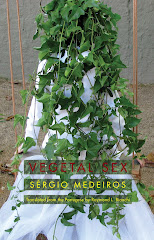 On Sunday Pope Benedict Beatified over 400 Clergy, Religious and Laity who died in 1930's Spain during the Spanish Civil War. These dead were mostly parish priests, sisters and a few bishops.
On Sunday Pope Benedict Beatified over 400 Clergy, Religious and Laity who died in 1930's Spain during the Spanish Civil War. These dead were mostly parish priests, sisters and a few bishops.The Spanish Civil War is a seminal event for the Left and the Right during the last century. But I think the reaction to the Beatification by today's Left exposes a fault line and a hypocrisy that is very strong. It is to be assumed that everything that originates from the Right is a bad thing. If you read the many histories of the Spanish Civil War the real evils committed by the Republicans (Left in Spanish Civil War Parlance) are often diminished in comparison to evil of say Guernica- which has been painted-poet ed-and written about in a large way.
The blind spot and lack of even-handedness about people's suffering is the problem with any millennial ideology. The reality is that Right Wing Authoritarianism (Nazism, Fascism, Falangism) and Left Wing Totalitarianism (Communism, Socialism of the East European Kind) are fruit from the same tree. They both begin with the assumption that something in society needs to be cleansed to make society better. For the Fascist it might be the Jews or the artists for the Communists it is the Middle Classes or the factory owners.
In the end both result in Death.
The problems are the blind spots. For many years Roman Catholics have chosen to have a blind spot over our collaboration with Fascism, Nazism and Falangism. Catholics were also involved in many acts of Anti-Fascism but on the whole we did support fascism in Spain and in other places we gave right wing regimes legitimacy. The Catholic Church has in many places admitted what happened and Pope John Paul II apologized to Jews for our 2000 year role in Anti Semitism. That was important I think.
Another blind spot is on the Left. To this day Marxism remains a working ideology among elite professors and intellectuals. The fact is however that Marxism has killed many millions more than Fascism. It is estimated that over 500 million people have been killed by Marxists of one sort or the other. The oddity is that this philosophy that was rejected wholesale by millions in the Communist Bloc should remain the operative philosophy for many of our best minds?
While the same intellectuals are right to attack those on the Right who were in bed with or supported the Nazis; the left does not feel it necessary to self examine their ideological roots and the death that this has caused. So when the Pope beatifies Priests or Sisters who were killed for their religious beliefs there are those of the Left who view these deaths as less evil than Guernica, the reasoning for this is odd.
I guess deep down they think the Priests and Sisters deserved it??
I for my part have always favored simple Dem0cracy.
Many of my deep family relations are on both sides of this divide. I had relatives who were committed Marxists and committed Fascists and every other 'ist' under the sun. I have relatives who spent World War 2 hiding in caves to avoid the Nazis and others who volunteered to go to Russia or Eritrea to fight for Mussolini's army.
I love all these relatives even though I despise both of their ideologies. I have always felt that all of this was stupid and equally evil. I for one would not want my personal ideology tied to any group that ever operated deathcamps which Marxists and Nazis have done around the world.
In the end it is time for adherents of all ideologies, be they Roman Catholic, Marxist or anything else to be open to admitting the evil committed in their names and ask the question why? And not be afraid to admit that we do not have the answers.






